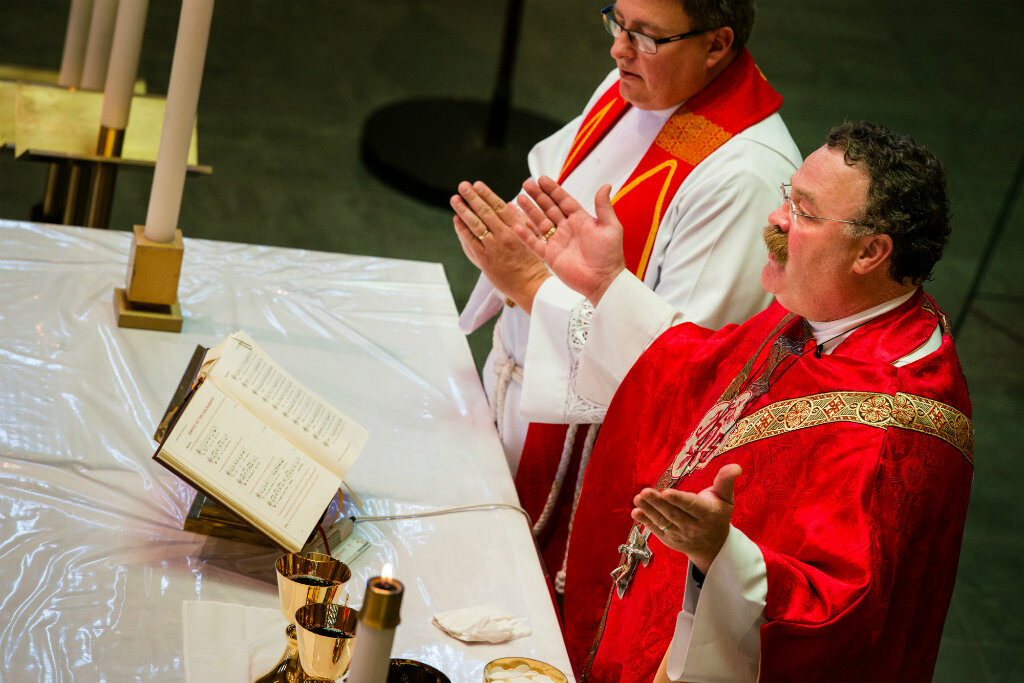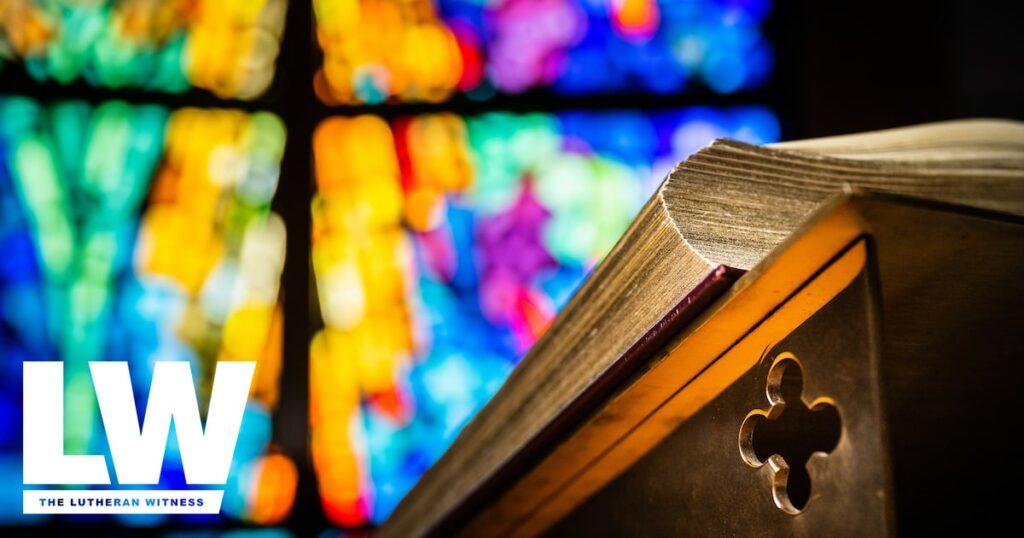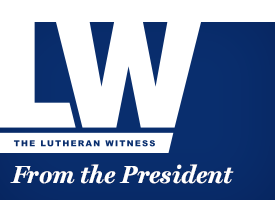
by Matthew Harrison
“Whether proclaimed by a layperson, preacher—indeed by the devil himself,” the Word does its work.
This month I’d like to share with you a report to the Synod in 1852, from its second president, the Rev. Friedrich Wyneken (1810–1876). As you’ll see, it’s well worth the read on the issues of the offices and responsibilities of pastors and spiritual priests.
Pastor Harrison
___
We believe, in indissoluble unity with the chief doctrine of the Christian Church, that Christ through His own sacrifice redeemed the whole world, reconciled God, and has perfected all who through Him are sanctified; that the Word with His Holy Sacraments—as seals—are the sole means through which the Lord applies to the redeemed the treasures of the forgiveness of sins, life and salvation, and heaven won by Him. …This is so whether this Word be proclaimed by a layperson, preacher—indeed, by the devil himself if, as Luther said, he were so pious and would do it. Everyone who lays hold of this Word in living faith, no matter how it comes to him, how and through whom it may have happened, is one with Christ. …There is no higher office or honor in Christianity…
Thus indeed the clergy cannot be essentially higher than the laity. He can be clothed with no higher or other dignity and office than this. For even he is nothing other than a king, priest, and prophet. But he is dignified by the Lord and his congregation to be placed as the householder, guard, watchman, and governor in this divine heavenly household of grace. He is God’s co-worker, among equally entitled and equally splendid brothers, whom the Lord has equipped with the necessary gifts. According to Christ’s mandate, the congregation has called him in view of these gifts. He carries out this office publicly in the congregation; through this office, the Body of Christ is built up…
There can be no rule of a privileged estate. All are kings and lords. There is only the rule of the Word, to which all are subject. They all acknowledge it as the Word of the Lord, which the pastor speaks and through which he renders them blessed, high, and glorious. Through this Word alone, the undershepherd also consoles, admonishes, warns, threatens, punishes, feeds, and governs the flock entrusted to him. Because the flock knows the Lord’s voice, and in the voice of the undershepherd does not hear the voice of a stranger, therefore the flock happily renders him willing obedience. For it is through him that the mouth of the beloved Lord and Shepherd speaks here. …
The Scriptures and the Confessions most definitely teach that in the Christian Church, there is no essentially different office than that to which we are all called in Holy Baptism, and to which we are all anointed, and which is therefore common to all who believe on the Lord. Thus the public pastoral office is not rooted in a particular ordering of Christ for a few privileged members of the Church who continue this order via ordination. The office is rather rooted in the Church itself. In the Church, it is most definitely taught that this office is therefore nothing other than and can be nothing other than the exercise of this common office given to all, as a public service. But the Church determines, maintains, and advocates that the public exercise of this office, which is common to all, must be conferred to an individual who is found suitable for it and properly called according to the order and institution of Christ. For the Lord still places shepherds and teachers as He once appointed and called the apostles. Now how will the public pastoral office be mixed up with the general priesthood where (not according to the understanding of our opponents), according to the meaning of Christ and His order, both are strictly distinguished, and in the congregation, nothing of such a mixing is tolerated or even hinted at? …
This office is not about concealing from the so-called laity its sovereignty, patronizing it, and defining ever more narrowly the boundaries within which it may move. It does not clip its rights, limit its heart, close its lips, [or] reduce it to timidity that it remain nice-looking and subject and not dare in any way to impinge upon the sovereignty of the educated and well-reasoned pastor. In short, the office does not consist in suppression of the laity in order to elevate the clergy at the laity’s expense… The dignity, the desire, and the joy of the true co-worker of God is to draw ever more his community of believers into their freedom and its worthy use, to encourage them and lead them ever more in the exercise of their rights, to show them how to exercise their duties that they be more and more convinced of their high calling and that they demonstrate that they are ever more worthy of that calling.
Excerpted from At Home in the House of My Fathers (CPH, 2011), pgs. 359–67.




What a wonderful blessing that God uses all his people to expand his Kingdom! This article makes me think of Philip Melancthon, who though not an ordained pastor, was encouraged by Luther to use his preaching gifts to up lift God’s people. What a wonderful thing it is that we in the Missouri Synod have recognized this and have created the office of Licensed Deacon, not to usurp the office of pastor but to supplement and extend it! May the Gospel move forward and may we always celebrate and allow the free use of all of God’s people’s gifts!